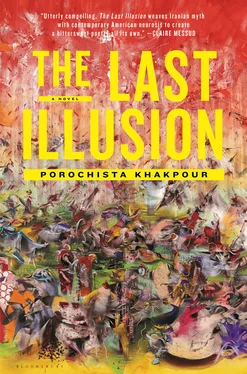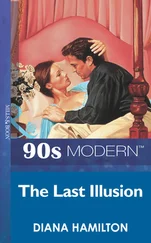To his surprise the journalist had written back the next day, with the e-mail and number of Silber’s “press people.” The journalist had added a note: And I’m sorry to say, I have never heard of you, but my God. What a story. To be honest I could not endure finishing the big article. It was too much. To say I am moved would be a real understatement. God bless you .
Zal did not write back, but instead wrote the press person. And again wrote the press person when he didn’t hear for days and days. And called and left a message and called again and finally got a young woman who said she’d pass the message on to his assistant.
He had basically given up when one evening Silber’s assistant called him.
“Zal Hendricks?” She pronounced his name the way many did, as rhyming with “Al.” “This is Indigo Menendez, from Silber Studios, calling—”
“It’s Zal, like ‘fall.’ Thank you so much for your call, Ms. Menendez.”
“Indigo, please. Anyway, I’m just his assistant. He was kinda sorta interested in that e-mail you sent our press chick, Betsy. You can come to his first show, the magic carpet one, with a backstage pass, how’s that?”
On the one hand, it was exactly what he wanted. On the other hand, it was not the show he wanted, although he wondered whether, if he went to the first one and then met him, he might be able to go to the second and third.
Zal tried to hide any traces of disappointment. “It’s a dream come true,” Zal said, which it still was. “How’s that?”
“Peachy to the max,” Indigo said flatly. “Bran will love to hear that. What’s your address, dude? I’ll overnight you the ticket. It’ll be worth the Vegas trip, trust me!”
Vegas trip. Zal did not say another word, just nodded into the phone, waiting until the dial tone to type the words into the search engine of his computer.

Early December 1999.
Zal, who had never flown since that fateful trip from Iran — Rhodes, though not against the idea, had advised he take some extra courses of therapy to manage planes in general, but aside from that Zal really had no interest in getting inside the belly of a giant roaring aluminum-alloyed bird — and suddenly he was on an Amtrak from New York City to Las Vegas, Nevada.
It took nearly sixty hours. He slept only here and there, half sleeps of sorts, filled with semi-lucid dreams, the dreams he’d normally shake off at home, dreams that were as abstract as they felt historic, even ancestral — the rush of air, swatches of perfect blue sullied only by a few puffs of transparent white, the stillness of atmosphere, endless canvases of black speckled with glimmering white-hot intangibles. In the nowhere-land of the train, he let himself go, fully go, into that other world, the world even his dreams sometimes resisted for their very dangerous dazzle: the what goes up that does not come down.
He barely registered Las Vegas — he simply took a cab to the hotel and checked in and stayed in. He had a full day to kill before the show that night. He spent it in bed all day, eating from the minibar, lunches and dinners made of M&M’s and Dr Pepper and cashews and Doritos and tomato juice, all at prices Zal had also not registered. He was still in his dreams. His heart raced when he thought of what lay ahead.
The world, they said, was about to end — there were fewer than thirty days until the new millennium — and all he wanted to do was the one thing in that other life, as well as this life, he was not able to do: fly.
He was supposed to be over that. And yet. But Zal had always justified it to Rhodes and others most simply, Who doesn’t want to fly? Take the Wrights. Take Bran Silber! It’s every man’s dream. This isn’t the result of me being a — and he only mouthed the words, other people’s words, words he could never get himself to own or even hit the air with in all their outrageously brazen odd audio— “feral child.”
His father had messengered him a suit, a hasty lunch-break buy in Midtown, when Zal announced his intention to go to Las Vegas, his first solo trip, just days before he’d embarked. Hendricks had asked him again and again, even asked Dr. Rhodes again and again, if it was really and truly okay. Zal was twenty-one, almost twenty-two, but his real age, Rhodes had estimated, was something more like fourteen, though Zal — who had turned the study of feral children upside down with his precociousness, a miracle of adjustment in a world of malformed and mush-minded freaks — was maybe, just maybe, more like seventeen. They had consented, even if a bit reluctantly.
In the hotel room, Zal laid out his suit and shirt. There was also the tie, the same tie Hendricks had over and over in the past few years taught him to tie, but his fingers and mind could simply not agree on executing the knot. He took a shower and put on the suit. He did not look in the direction of the mirror, which he had gotten rid of immediately anyway, covering it with a sheet. He remembered his Niagara Falls trip with Hendricks, where he had realized one thing all hotel rooms had in common: big full-length mirrors. Hendricks had taught him to fling a full sheet over them and just take a deep breath.
When Zal got to the MGM Grand, he did as he was taught— always ask —and a gruff guard, bewildered by his lack of comprehension of simple right-left directions, begrudgingly walked him to the show space. An usher — the opposite sort, who approached him to help — took him to his seat, calling him “Mr. Hendricks” and saying over and over “pleasure,” as if it were a magic word. His seat was not in the front row, as imagined, but at least a dozen rows from the front and to the far left.
It didn’t matter. He was at a Silber show, and the man was about to fly.
The room darkened; Zal bit his lip to keep from making a sound, weaved his fingers together to avoid making a move. The curtain teasingly blew to the left and right under suddenly purple lights, as if a mystical midnight breeze had overtaken them. Then, sound — sounds Zal, thanks to Hendricks’s years of gradual Persian cultural immersion, vaguely knew belonged to some part of his original culture. In came the mournful whine of the Persian violin, the kamancheh, the wobbly bass percussion pulse of the goblet drum called tonbak, the haunting reedy coos of the ney flute, the angelic metallic chatter of the santur dulcimer, the rollicking mellow warmth of the tar lute. (This one he knew best of all, as Hendricks had prescribed tar music in huge doses during Zal’s worst depressive, insomniac phases, always referencing the instrument’s ancient music therapy role. For centuries, apparently, the mere sound of a tar was thought to be a panacea for all diseases of the spirit.) The music was nice, but as much as Zal wanted it to, it did not have that to-your-bone familiarity Hendricks always hoped it would. Its beauty was about as exotic to him as it was to the rest of the audience, if not more.
It went on and on. They were supposed to be someplace else, somewhere far, sometime long ago, after all.
None of it was what he imagined. Zal had never seen a magic show, he reminded himself, but he did not expect all the singing and dancing and laser-light-show antics, the camels and their outfits, the painted snakes and their equally painted charmers, the elephant powdered white and decked in tassels and bells (no birds, he noted, mostly happily). He did not expect all the women, symbols of the harem, he supposed, these scantily clad, glittering, shimmying, grinding, belly-dancing women of all color — blond and gold, black and brown, white and red — that he supposed were simply those famed Vegas showgirls. He did not expect Silber to come out in a blue metallic turban held in place by handfuls of jewels, Silber shirtless with flowing pink silk pants, brandishing with little conviction a very large and curved and no doubt fake sword, leaping from this point to that, twirling the girls, riding animals, doing everything but. . magic.
Читать дальше













